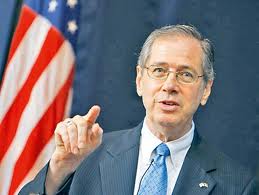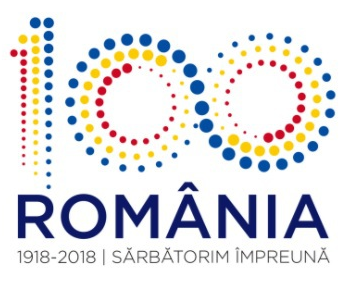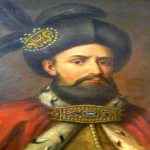NEDUMERIRILE (fostului) ambasadorului SUA despre PREMIERUL INTERIMAR G.Oprea
În 2010, ambasadorul american Mark Gitenstein încerca să le explice șefilor de la Washington cine e Oprea . Două lucruri se zbăteau, nelămurite, în capul lui Gitenstein. Care au rămas și acum niște necunoscute pentru poporul român. Cum și-a luat și unde G.Oprea doctoratul, unu, și cum a reușit să acumuleze stele de general precum punctele de fidelitate la hyper-market, doi.
1. “It remains unclear when Oprea received his own Ph.D. and topic of his doctoral thesis is not a matter of public record” (în 2010, deci, pentru ambasadorul american de la București nu era clar cînd își luase Oprea doctoratul iar lucrarea de doctorat nu era o chestiune publică, mai nota Gitenstein, fără alte observații);
2. “It is unclear how and when Oprea advanced from captain in 1993 to major, lieutenant colonel, colonel. He was promoted to brigadier general (one star) in November 2001, he received his second star in 2003, the third in 2008 and the fourth in 2009″ ( al doilea mister era avansarea în ritm frenetic a lui Oprea: de la căpitan pînă la colonel; Gitenstein nota că nu se știa nici cum, nici cînd fusese Oprea avansat în toate gradele superioare celui de căpitan).
Restul cablogramei trimise de Gitenstein la Washington este foarte util ca să înțelegem succesul lui G. Oprea din 2010 încoace.
C O N F I D E N T I A L SECTION 01 OF 02 BUCHAREST 000040 SIPDIS
DEPT FOR EUR/CE ASCHEIBE DEPT ALSO FOR INR/B
E.O. 12958: DECL: 01/19/2020 TAGS: PGOV, PREL, PINR, RO
SUBJECT: NEW DEFENSE MINISTER – OLD SOLDIERS DON’T DIE,
THEY JUST GET PROMOTED REF: 09 BUCHAREST
Classified By: DCM Jeri Guthrie-Corn, reasons 1.4(b) and (d).
1. (C) SUMMARY.
Retired four-star General Gabriel Oprea brings both military and political know-how to the Ministry of National Defense (MoND). After serving for over a decade as a logistics and legal officer in the Army, Oprea continued to serve as a military academic at the National Defense College. While well respected as a soldier and an academic, Oprea’s real talents became evident once he entered politics. This is evident in his rapid rise through the retired ranks. Despite retiring as only a Captain, Oprea has been promoted to the rank of four-star General, and now Minister of National Defense and head of a growing and increasingly powerful group of Parliamentarians, due to his political skill and knack for picking the winning side in Romania’srough and tumble political battles. END SUMMARY.
MILITARY MAN AND ACADEMIC
2. (C) Gabriel Oprea graduated from the Logistics Department of the Sibiu-based School for Active Duty Officers in 1983 and served as a logistics officer in a Bucharest-based unit until graduating from the Bucharest Law School in 1990. He then served as a military justice officer until his retirement from active duty with the rank of Captain in 1993. Oprea then went on to study national security and defense issues at the National Defense College before becoming the vice chair of the National Defense College Foundation and deputy director of the National Defense College itself. In 2001 he became professor at the National Defense College. Oprea has also worked as a professor with the National Academy for Intelligence, and serves as a Ph.D. coordinator there and at the Romanian Police Academy. Oprea also sits on the Board for the Certification of Academic Titles, Diplomas, and Licenses. It remains unclear when Oprea received his own Ph.D. and topic of his doctoral thesis is not a matter of public record.
3. (SBU) It is unclear how and when Oprea advanced from captain in 1993 to major, lieutenant colonel, colonel. He was promoted to brigadier general (one star) in November 2001, he received his second star in 2003, the third in 2008 and the fourth in 2009. The first two stars were awarded by President Ion Iliescu of the Social Democratic Party (PSD) while Oprea was serving in the PSD. The second two stars were granted by President Basescu, after Oprea began to distance himself from the PSD.
OPREA AND THE PSD
4. (C) While Oprea did not become a „card-carrying” member of the PSD until 2003, his political career began in 2001 when he served as a State Secretary in the Ministry of the Interior in the PSD Prime Minister Adrian Nastase’s Government. In 2004, Oprea became the PSD chairman for the Ilfov region, adjacent to Bucharest and increased his political, and reportedly his personal, fortunes by creating a network of contacts and supporters and investing in local real estate. From 2004 to 2008, Oprea was a member of Parliament, serving on the Joint Committee for the Romanian Intelligence Service Oversight and the Committee for Defense, Public Order and National Security. It was in this role that the Embassy invited Oprea on a demonstration flight on an F-16 in October 2008. When the PSD formed a coalition with President Basescu’s Democratic Liberal Party (PDL) in December of 2008, Oprea, with the support of Nastase, was chosen as Interior Minister. Despite receiving the position, Oprea was uncomfortable with his position in the PSD. He was closely allied with the increasingly isolated Nastase, and was opposed by the ascendant PSD president Mircea Geoana. Oprea would soon gamble his political future by challenging the PSD.
BECOMING BASESCU’S MAN
5. (C) Oprea’s tenure as PSD Interior Minister was short-lived. He quickly lost the trust of the PSD by naming Virgil Ardelean, a Basescu favorite, as head of the Interior Ministry’s in-house intelligence service and by refusing to name PSD members to the plum positions within the ministry. The PSD accused Oprea of being President Basescu’s Trojan horse within the Cabinet. Chairman Geoana called Oprea to confront him about the appointments but Oprea „rudely” told him he was not accountable to the party for his work as minister. Less than a month after he took office, the PSD withdrew its political support for Oprea and he resigned from his position as minister. (Note: The next PSD Interior
BUCHAREST 00000040 002 OF 002
Minister, Liviu Dragnea, also resigned ten days after his appointment, privately citing the same pressures to appoint people hand-picked by PSD leadership. End note.) Oprea resigned from the PSD two days later and publicly said that he chose to resign rather than become a puppet of the PSD leadership.
6. (SBU) On the presidential campaign trail in 2004, Traian Basescu called Oprea a „member of Adrian Nastase’s personal mafia” and accused Oprea of serving as front man for Nastase’s business deals and doing his dirty work for him. Yet, by the end of 2009, Oprea had become Basescu’s political ally and his nominee for an important cabinet position. In October 2009 President Basescu awarded Opera his fourth-star and praised him as the „first minister” who resigned rather than appoint incompetent people for political reasons.
THE DEFENSE MINISTER’S POLITICAL FUTURE
7. (C) Following his departure from the PSD, Oprea became the leader of a growing group of „Independent” MPs who had defected from the PSD and the National Liberal Party (PNL) to support President Basescu. In the lead-up to the December 2009 presidential election, Oprea used his extensive network of business and political associates to actively campaign and raise money for Basescu’s re-election. Following Basescu’s victory, Oprea formally participated in the consultations to form the government on behalf of the Independents in Parliament (now around 25 and growing). With the help of PDL leaders, Oprea is reportedly busy recruiting further Independents, sparking rumors that he, together with PSD reformers and PNL defectors, will set up a new party, the Union for Progress, later in 2010.
8. (C) At his confirmation hearing before the Parliament in December 2009, Oprea said that he would resign if the military does not receive a larger budget, „more than two percent of the national budget,” after the economy recovers. At Oprea’s inauguration ceremony, President Basescu recalled Oprea’s uncompromising stand as Interior Minister, and said that in 2010 the Romania military’s mission will increase, there will be more troops in the Afghanistan theaters, and additional financial resources beyond those in the budget will be provided at the discretion of the PM. Oprea responded that he knows the issues that the military faces and that he is „ready to fight to solve them.” Oprea acknowledged the financial difficulties facing the Romanian Government in 2010 but pledged „not to leave behind the Romanian troops who are in theater.”
9. (C) COMMENT. The Romanian Ministry of National Defense has been plagued by a series of ministers who were unable, or unwilling, to fight for the resources necessary to modernize the armed forces and support their deployments around the world. Despite the apathy of previous ministers, the Romanian military has proven to be a strong NATO ally in Afghanistan, Iraq and in the Western Balkans. Recently, the CHOD, Adm. Gheorghe Marin, told the Defense Attach that he is encouraged by the new Defense Minister’s experience in both the military and in the Parliament. As a major new player in Romanian party politics, Oprea has the ear of the President and sits at the head of a block of parliamentary votes that are essential to the success of the new Government. He is strongly independent and well positioned to fight for new resources for a military that has long made do with less. END COMMENT.
GITENSTEIN























